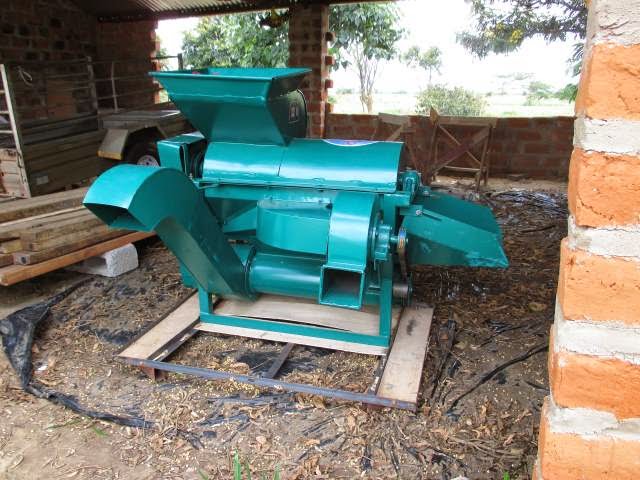The smoke signals have been few the last while, since we have been struggling with the internet, to no end. I think if we actually could use smoke signals we would be able to communicate even more effectively.
But anyway, here we are. The work has not been standing still.
Firstly, we have had substantial support from Hope Builders ministries, or at least some of their faithful donors. Thus, it has been possible to purchase a few pieces of equipment.
This is a peeler, that takes the leaves off the maize. It will be connected to the diesel engine of the two wheel tractor shown in the previous blog entry.
This is the maize sheller, that takes the kernels of the cob. Carl had the frames made by a local welder. This too is now at the right height to connect to the diesel engine of the tractor. (I have a beautiful video of when they connected it the first time, and did so the wrong way around. Spitting them with cobs and kernels together;)
We've shelled our own harvest, some of it is laying in the background drying.
Then Carl asked the welder to also make a hammer mill. So, soon some pictures of that.
All the equipment, together with a great many bags of stored maize will come to rest in the storage, which is also progressing:
They hope to start working on the sides in the coming days.
All this is part of trying to promote effective farming methods.
To demonstrate the effective farming techniques, we are also clearing land, next to the piece we currently have fenced.
It has been a huge task to take down the trees and fill all the holes. (hopefully destroying a few snake houses)
So, after people have been provided with training, and helped to develop the land; then giving them an opportunity to keep it safe, we would as last link also help them in effective use.
The maize will mostly be eaten and ground as chicken feed. As we would like to practice rotation crops, there will also be other products, for instance soya beans:
These are expansions, that will keep happening as we aim to use what is available.
We also have a piece of land where the sunflower is growing at the moment. The weather is so mild here, that it is possibe










